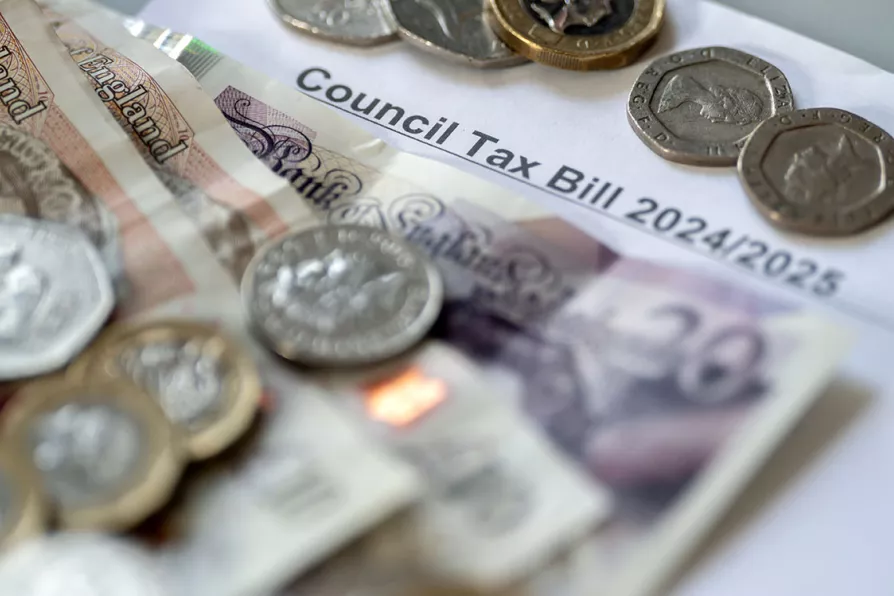
 Money stacked on top of a council tax bill
Money stacked on top of a council tax bill
CAMPAIGNERS warn that the poorest communities will be hit hardest amid reports that council tax bills are set to rocket at the fastest rate in two decades.
Treasury documents published following Chancellor Rachel Reeves’s spending review shows that councils can expect their core spending power to rise by 2.6 per cent a year from 2026.
The Institute for Fiscal Studies director Paul Johnson said local government did “perhaps a little bit better than it might have expected” in the review, but the “sting in the tail” is the assumption that council tax will rise by 5 per cent a year.
Mr Johnson warned that if councils choose a 5 per cent increase “bills look set to rise at their fastest rate over any parliament since 2001-05.”
It is estimated that the average council tax bill will rise by £359 by 2029.
Chelsea Phillips, National Chair of Acorn union said: “It’s infuriating to hear that council tax will rise at an even faster rate, squeezing the people with the least money even more while the cost of living crisis continues.
“It’s our people and our communities that will suffer the most; there’s a clear correlation between the poorest areas in the country seeing residents with rising council tax debt, and bailiffs banging on the door to take it.
“Ultimately, council tax is a flawed system, and it needs replacing with a proportional property tax that shifts the burden to wealthier property owners.”
Lucy Bannister from financial support charity Turn2us warned that the government’s reliance on council tax increases to fund local services will “ramp up pressure for families already unable to afford essentials.”
Senior public policy ddvocate at StepChange Emily Whitford said that council tax is the most common type of arrears among the charities’ clients.
“Without the right support, any bill rise will almost certainly push people further into debt.
“We need to see the government end the postcode lottery of council tax support, reinstating 100 per cent reductions for those on the lowest incomes, as well as encouraging take up of this offering.
“Not only that, we need to see wider reforms to council tax debt collection to reduce harm and place compassion at the heart of the process — something the current system lacks.”
Recent research by Debt Justice revealed that 4.4 million people in Britain have fallen behind on their council tax in the last 12 months — up from 3.2m compared to the year before.
It also estimated that local authority use of bailiffs is costing the taxpayer and wider economy at least £91m a year.
Ms Reeves told ITV that the government “won’t be going above” a council tax increase of 5 per cent a year.










